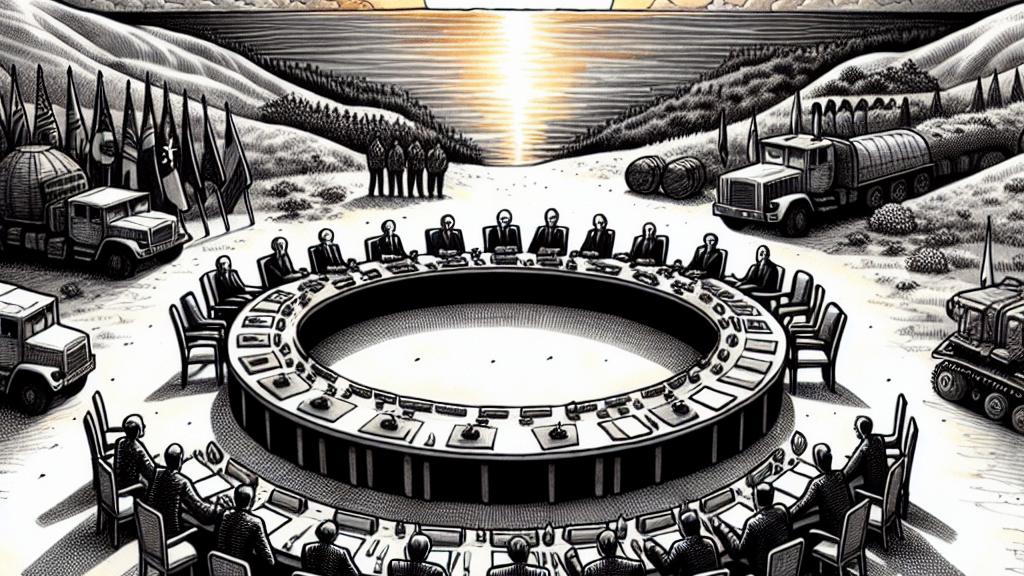Yoon's Vision: A New Dawn for North-South Dialogue?
Overview
- South Korean President Yoon Suk-yeol proposes a working-level consultative body with North Korea to ease tensions.
- The initiative emphasizes that cooperation is contingent on North Korea making progress toward denuclearization.
- Concerns remain about North Korea's likelihood to accept, reflecting a history of skepticism and failed negotiations.

An Opportunity for Dialogue
On August 15, 2024, South Korean President Yoon Suk-yeol delivered a speech commending the nation's resilience while detailing a promising strategy to improve relations with North Korea. He proposed the formation of a working-level consultative group tasked with discussing methods to alleviate tensions between the two nations. Yoon clearly articulated that South Korea would be ready to initiate political and economic cooperation as soon as North Korea took meaningful steps toward denuclearization. This proposal is particularly noteworthy in a landscape where inter-Korean communication has been marred by military provocations and hostilities spanning decades, making it a pivotal moment in diplomatic efforts.
Challenges Ahead
Despite the hopeful outlook presented by Yoon, experts maintain a cautious stance regarding North Korea's potential acceptance of this initiative. Previous attempts at fostering dialogue have often been met with rejection, as North Korea typically interprets such offers as a means for South Korea to assert control rather than genuine partnership. Kim Jong-un's regime has consistently prioritized military capabilities over economic cooperation, believing that a strong nuclear arsenal is essential for regime survival. Additionally, the current political climate within North Korea, which emphasizes military modernization, poses considerable challenges to any diplomatic overture from the South. These historical trends and ideological divides complicate the path forward and underscore the difficulties in forging lasting peace.
Incorporating Human Rights into the Equation
The dialogue surrounding inter-Korean relations must also include a crucial focus on human rights abuses occurring within North Korea. There is a growing consensus among experts that prioritizing human rights in conjunction with diplomatic efforts is essential for meaningful progress. The plight of North Korean citizens—who suffer under severe repression—demands a dedicated effort to raise awareness among them regarding their rights and the potential for a united future. A concerted public diplomacy campaign, aimed at disseminating information and supporting defectors' narratives, could help empower North Koreans to strive for change. By integrating human rights advocacy into the fabric of diplomatic relations, South Korea can promote a more holistic strategy that not only encourages dialogue but fosters genuine support for a free and unified Korean Peninsula.

Loading...